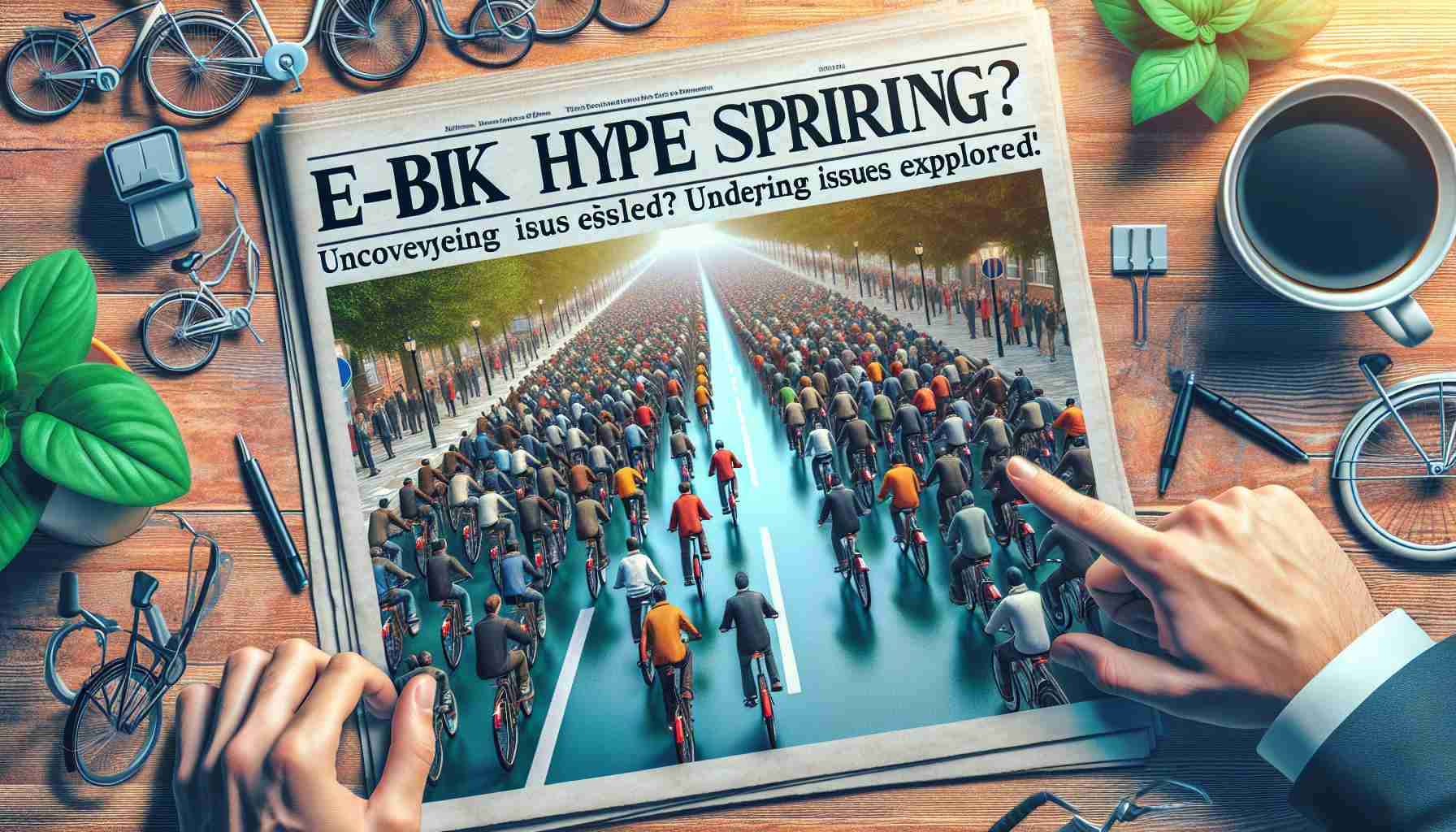
Controversy Surrounds the BBC’s Panorama Special on E-Bikes
The BBC’s recent Panorama episode, “E-Bikes: The Battle For Our Streets,” hosted by Adrian Chiles, has ignited a heated discussion surrounding electric bikes in urban areas. The episode aims to address the rising concerns over e-bikes, depicting them as a potential threat demanding stricter laws.
Chiles highlights a concerning trend: many incidents linked to e-bikes involve illegal modifications that transform standard bicycles into dangerously speedy motorbikes. However, the program fails to clarify that these modified bikes do not represent conventional e-bikes, leading to confusion among viewers. Critics have pointed out that the program largely attributes reckless behavior and accidents to legal e-bikes, despite evidence suggesting most offenses stem from illegal versions.
Social media responses have been sharp, with commentators asserting that actual figures indicate a mere two percent of pedestrian collisions involve bicycles. Outrage has also blossomed over Chiles’s unsubstantiated claims regarding the Cycle to Work Scheme and illegal modifications.
Amid the backlash, organizations like the London Cycling Campaign argue that e-bikes actually promote public health and sustainability, urging the government to focus on regulating illegal modifications rather than demonizing all e-bikes. As tensions rise, the call for better regulations and accountability from delivery companies grows louder, signaling that the e-bike conversation is far from over.
Is the E-Bike Debate Turning Dangerous? Insights from the BBC’s Panorama Special
Overview of the E-Bike Controversy
The recent BBC Panorama episode, “E-Bikes: The Battle For Our Streets,” has stirred significant debate about the role of electric bikes (e-bikes) in urban environments. While the documentary aims to investigate safety concerns, it has unintentionally sparked confusion regarding what constitutes a standard e-bike versus an illegally modified one.
The Core Issue: Misrepresentation of E-Bikes
Adrian Chiles, the show’s host, emphasizes the growing concern over the safety implications of e-bikes, particularly focusing on incidents linked to upgraded models that often exceed legal speed limits. A critical point of contention is that the episode does not clearly differentiate between legal e-bikes and those that have undergone illegal modifications, potentially misleading viewers into generalizing the risks associated with all e-bikes.
Statistics and Public Sentiment
In the wake of the broadcast, public reactions on social media have criticized the portrayal of e-bikes. Many users referenced statistics indicating that only about 2% of pedestrian accidents involve bicycles, highlighting a disconnect between the issues raised in the program and the actual data. This has raised questions about the narrative’s accuracy and the representation of e-bikes in public discourse.
Advocacy for E-Bikes
Organizations, including the London Cycling Campaign, argue that instead of vilifying e-bikes, the focus should be on promoting their benefits to public health and sustainability. These advocacy groups contend that e-bikes can reduce congestion and pollution, calling for stricter regulations on modified bikes rather than a blanket condemnation of all e-bikes.
Pros and Cons of E-Bikes
Pros:
– Environmental Benefits: E-bikes are seen as a greener alternative to cars, promoting a reduction in carbon emissions.
– Health Advantages: They encourage physical activity among users, contributing to better public health.
Cons:
– Safety Concerns: The risks posed by technically modified e-bikes raise valid concerns about pedestrian safety.
– Regulation Challenges: There is an ongoing debate about how to effectively regulate e-bikes without stifling their positive impacts.
Regulatory Trends
In light of the growing e-bike market, experts suggest that governments must act to create a balanced regulatory framework. This would help distinguish between legal e-bikes and their modified counterparts while ensuring that responsible usage is encouraged. Additionally, calls for delivery services to take responsibility for their e-bike fleets have been gaining traction, as these companies often use modified bikes that can contribute to accidents.
Future Predictions
As e-bike usage continues to rise, we can expect ongoing dialogue about their regulation and safety. Innovations in e-bike technology—such as improved safety features and regulatory compliance systems—may play a significant role in shaping the future landscape of urban transport.
Conclusion
The controversy sparked by the BBC’s Panorama episode reflects broader societal concerns about urban mobility and safety. As e-bikes become more mainstream, balancing public safety with the promotion of environmentally friendly transportation will be essential for city planners and policymakers alike.
For more insights on e-bike trends and regulations, visit BBC.



